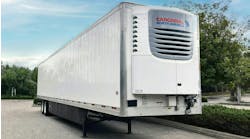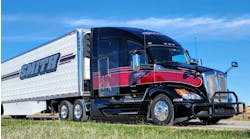C H Robinson and the MIT Center for Transportation & Logistics (MIT CTL) have combined to develop research aimed at finding ways to better quantify carbon emissions at the less-than-truckload (LTL) shipment level.
According to a newly completed white paper, A New Model for Estimating Carbon Emissions from LTL Shipments, current methods of calculating carbon emissions can be highly inaccurate, and determining emissions for LTL is more challenging than for other types of transportation. The research examined the issue using actual shipment- and route-level data from TMC, a division of C H Robinson.
“LTL is a significant and growing business, worth $35 billion in the United States alone,” said Greg West, vice-president North America LTL at C H Robinson. “As global retailing continues to grow, it will be more and more important to understand the implications of LTL carbon emissions.”
The Greenhouse Gas Protocol Corporate Accounting and Reporting Standard (GHG Protocol) and the Environmental Protection Agency’s SmartWay Program are currently used to calculate emissions, but neither can account for the unique characteristics of individual LTL shipments.
“We set out to better quantify emissions from LTL shipments and identify flaws in the current methods used,” said Steve Raetz, director of research and market intelligence at C H Robinson.
The company commissioned the research as a MIT CTL master’s thesis project. This project was able to create models that provide a starting point for analyzing existing methodologies and for developing more accurate approaches for calculating carbon emissions at the LTL shipment level. This information may be helpful in shaping future emissions mandates and regulations.
“A green supply chain is often a more efficient one,” the paper said. “Developing a more precise analysis of LTL’s carbon output also makes good business sense. Exploring the true carbon efficiency of LTL is likely to highlight potential areas where performance can be improved, and enable shippers and carriers to make smarter operational and environmental decisions. Reductions in carbon emissions are likely linked to reduced costs of operation.”
The work cited in this white paper provides a platform for future research. If adopted, these models can help the industry to create a more precise account of LTL carbon emissions.
For more information, go to www.chrobinson.com.




